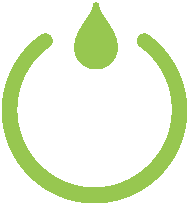Setting Training Goals. How. When. Why.
Why are you training?
Is it to:
Become fitter?
Become leaner?
Maintain fitness?
Gain clarity, confidence and mental strength?
Training for an event or your sport?
It could be all of the above, and more. The one key factor with training is your WHY. What’s the point? What are your training goals? What outcome do you want to see from training? What do you want to achieve?
How does this relate to nutrition?
As a nutritionist who also loves to train, if I haven’t cleared WHY with my training, then sometimes it can feel fatiguing – both physically and mentally. And this is a little dangerous on many levels (think: complacency, frustration, injury). Unless I am training for something specific, I typically train regularly to keep my physique strong and my mind focused. Running a business and consulting with private and group clients, whilst also managing a young family, requires me to stay active!
However, if you’re training seven days a week and your nutrition doesn’t match your training goals, then you’re simply not getting the most out of your workouts. This may be due to various reasons such as undereating, overeating, not eating the right amount of macros to meet your training needs, too much alcohol etc. On a longer term basis, you’re not seeing the results you want from your training.
When I’m conducting seminars, retreats and 1:1 consults, I remind my clients that your training “gains” are actually made 4-6 hours after your training session. The type of food and nutrients you eat (e.g. higher protein, lower fat etc) post-training, and during this extended period of time, coupled with the absorption rate of the nutrients, will either support your training or will not support your training. Results from your training are also dependent on your body composition; the more muscle, the more energy it uses, the more food you’ll require to increase muscle protein synthesis.
However, unless you know what you want to gain from your training sessions, then working out how your nutrition can support this, is going to be a little complicated.
So, let’s start with helping you to set a few training goals. Write your answers to the following and make them visible:
Make the goal clear and achievable.
Is your training goal specific? (I.e. increase x amount of muscle mass or decrease x amount of body fat % or lift x amount by a certain date etc.)
What timeframe have you set? Is a short-term or longer-term goal?
What are the barriers? Have you identified them? (Barriers can be physical and mental).
What will you do to reframe these barriers so that you can reach your goal?
From there, you will create a clearer path towards achieving your training goal.
If you feel you need support to 1. understand your training goals 2. align your nutrition to these goals, then let's chat. You may be surprised at how small changes lead to big results.
How can we work together in 2023?
I offer consultations as single-sessions or the VIP 1:1 5-Session Nutrition Consultation Package. To learn more, book a free call here.
You can also read about my work here.


